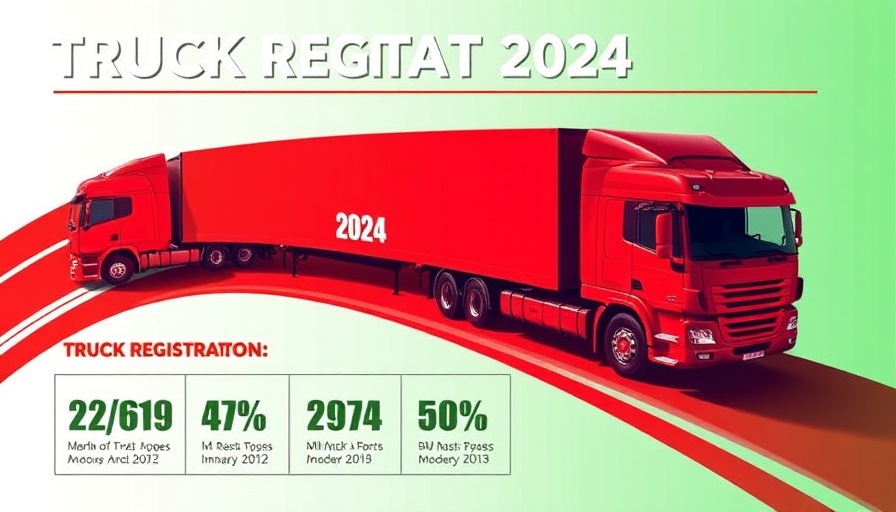
Demand Stagnation Amidst Market Normalization
The UK’s heavy goods vehicle (HGV) market has faced a notable downturn, with the Society of Motor Manufacturers and Traders (SMMT) revealing a 2.7% decline in registrations in 2024. This represents the first fall after three consecutive years of growth, which peaked in 2023 due to a dominant truck fleet renewal period. The decline, particularly seen in articulated truck registrations—which dropped by 12.4% to 19,079 units—underscores a broader shift in operational demands and market dynamics.
Challenges for Zero Emission Vehicles
Concerningly, the data highlights a fall in zero-emission truck demand, which decreased by 7.3% to just 217 units, maintaining a mere 0.5% market share. This stagnation raises valid concerns considering the UK’s upcoming mandate to end the sale of all new non-zero emission HGVs by 2035. With nearly three-quarters of the truck market needing to transition, a considerable acceleration in uptake is essential over the next decade.
Financial Obstacles Facing Fleet Operators
The rising cost of zero-emission vehicles presents another significant barrier. The production intricacies contribute to higher acquisition costs for fleet operators, creating hesitation to invest. As highlighted in a parallel discussion from the UK automotive industry, high interest rates and rising compliance costs exacerbate the challenges faced by manufacturers and operators alike. This financial strain may dampen the appeal of used cars as potential avenues for fleet expansion amidst reduced new registrations.
The Need for Strategic Support
To counter these issues, industry leaders are advocating for an updated replacement for the Plug-in Truck Grant, which is set to expire shortly. Without compelling incentives for new zero-emission HGV models and support for necessary depot upgrades, the uptake is likely to remain stagnant. The lack of adequate enroute charging infrastructure—currently below five dedicated charge points on UK roads—further complicates the transition to a greener fleet.
Looking Ahead: Urgent Action Required
Experts assert that the current trajectory could lead to a substantial dent in the market, with potential job losses and diminished business viability if the ZEV Mandate parameters remain unadjusted amidst shifting market demands. As Mike Hawes, SMMT Chief Executive, articulated, the situation necessitates immediate government intervention to reevaluate regulations for fiscal viability and sustainable growth.
Conclusion: Prioritizing a Green Transition
In conclusion, while substantial progress has been made, both vehicle manufacturers and policymakers must act decisively to overcome the financial and infrastructural hurdles currently facing zero-emission trucks. Fleet operators looking to explore options may find better financing opportunities through used car financing rates or used auto financing calculators to ease the transition.
As the industry marches toward its 2035 goals, it is clear that minimizing used car loan interest rates can also be a part of a broader strategy to ensure a stable, sustainable transport sector.
 Add Row
Add Row  Add
Add 




Write A Comment